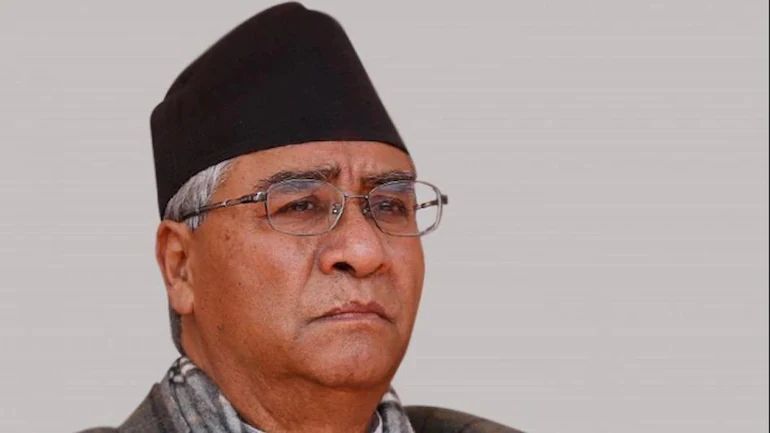
Nepal’s Supreme Court on Monday ordered the restoration of the country’s Parliament for the second time after it was dissolved by Prime Minister K P Oli. The apex court also ordered Sher Bahadur Deuba of the Nepali Congress to succeed Oli as prime minister. Deuba has become Nepal’s prime minister for the fifth time in 20 years.
The Court ordered that Deuba be installed as prime minister by 5pm on Tuesday, and for the House to be reconvened within one week. It also ruled that the 23 UML members who added their signatures to the petition against their own party should not be disciplined, which was also a claim in one of the writs.
Deuba will have to prove his majority in the House within one month. If he fails to get a majority, which is a possibility, there will be early polls in November.
Many Nepal observers and other leaders feel that ruling on a strictly political matter of who should be prime minister, was a matter for Parliament and beyond the jurisdiction of the Supreme Court. But here is why the Supreme Court gave the order.
Why the verdict?
The controversial ruling by the Constitutional Bench led by Chief Justice Cholendra JB Rana was after an alliance of anti-Oli parties filed writ petitions in the top court for restoration of the parliament and naming Deuba PM.
Deuba along with 146 MPs from his own party, with those from the Maoist Centre as well dissident factions of the JSP and the UML had filed the writ on 24 May, soon after President Bidya Bhandar rejected the claim by both the alliance and Oli that they had the majority in the House to form the next government.
Legal experts believe that after entertaining the petition with these two demands, the bench logically could not have accepted one while rejecting the other. Moreover, the same constitutional bench had given a similar verdict in February when Oli dissolved the Lower House for the first time.
The Consitutitonal Bench had heard arguments by both the petitioners as well as government lawyers about whether it was the party whip or the individual member’s right to vote during a floor test in the House. Clearly, the Bench felt that MPs were free to vote of their own free will and did not have to always obey the party line.
Role of President Bhandari
The anti-Oli faction led by Deuba had also claimed in the court last month that President Bidya Devi Bhandari was complicit with Oli while dishonouring their demands. The President did not honor their call for the restoration of the House and Deuba to be made prime minister.
After dissolving the House following loss in a confidence vote on 21 May, Oli still staked his claim to form a government, showing he had support of all the members of the UML and JSP – even those who had voted with Deuba.
President Bidya Devi Bhandari’s rejection of Deuba’s claim to lead the government two months ago had prompted 146 politicians from a five-party alliance to file writ petitions in the Supreme Court on 24 May.
